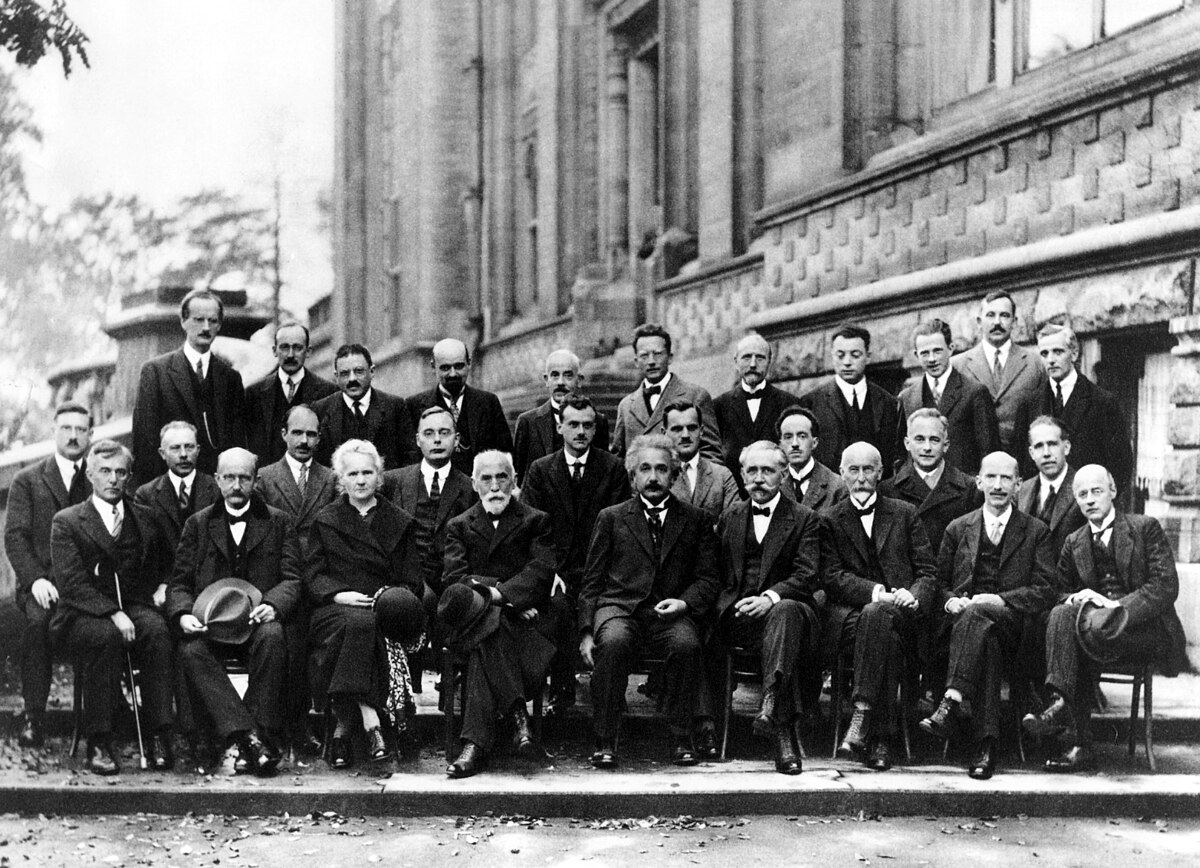I don’t know what research is (yet).
Anything we seriously pursue in life is foggy at the beginning. We don’t really know what we’re doing, whether it is made for us, or whether we are made for it. Sometimes it even seems like we are doing the worst error in our existence, but at the end it is what will make our success maybe. The story of Steve Jobs is something I love to remember about this, read it here.
In this small essay I will be trying to present the complex concept of “research” as seen by the following researchers: Jason Wei (Meta Superintelligence Labs), Tom Silver (Assistant Professor, Princeton University), John Schulman (OpenAI cofounder, worked at Anthropic, chief scientist at Thinking Machines), Michael Nielsen (Research Fellow at the Astera Institute), Andrej Karpathy (OpenAI cofounder, founder of Eureka Labs) and Richard Hamming (American Mathematician).
Before going further, I noticed something simple that helped me understand why people stay in research for years. We often talk about the creative drive in art, when someone feels something inside and turns it into a painting, a melody, a story or a book. I think there is something similar in research. I don’t think it is something reserved for a selected elite, most people feel a form of inner satisfaction when they solve a problem or when an idea finally becomes clear. For me this is close to curiosity, the same one we all had as children before it got lost behind routine, responsibilities and taxes.
I also remembered something from philosophy classes. We were told that questions matter more than answers. I did not think much about it until recently. A question is where everything begins. Every discovery was first a simple interrogation from someone that is lost but doing his best to understand. Gravity, computers, countless theories, all of them started as small “why” or “what if” moments. The answer came later, but the question was the initial seed.
Of course, truth won’t come to us easily (and will always come partially), we must dig …

How do I know that I am made to do research ?
In another post, “So what do I do now?”, I talked about that broader question that comes after graduation, I just tried to show not just the normality of being lost, but its importance in finding our track where we will race. Here, we’ll try to build on that. We can gather some criteria, a sort of checklist, to see if research is a good fit. Not according to me, of course, but to the elders in the field. I will, naturally, weave in a small opinion of my own.
To begin: what is your fuel? Are you moved by a deep passion for problems? Tom Silver explained in his blog post that the best researchers (sorry for that term we will see after that there are not such thing as a good/best researcher) are passionate about solving problems and don’t care what methods they have to use. Are you genuinely excited about a specific problem or topic ?
And after you dedicate yourself to this problem, after you become an expert, is that a satisfying end in itself? Andrej Karpathy, in his “Survival guide to a PhD,” asks us to consider this. Are you happy with the idea of being a world expert in a niche, of having true ownership over your work? This is not at all about fame: I don’t think many researchers are famous, at least not in front of Instagram models and movie stars. But it’s about a personal/romantic fulfillment. A good thing also comes here, something that everyone loves: an immense freedom in pursuing your interests. This is a freedom you might not have in a more regular job. Of course, some supervisors might not grant you that freedom and some industry jobs might, but the general tendency holds.
Sadly, this freedom comes with a heavy price, can you handle the pressure when you are, for the most part, your own boss? Can you handle the delay of money ?Even though I really believe that an extra £1000 in salary for three years won’t make you truly rich anyway (only entrepreneurship might) but the feeling can still be difficult. And perhaps most importantly, are you ready to invest so much time and work into something, only to see it fail or be rejected by reviewers afterwards? It is hard, but I think it shapes your perspective. You are forced to detect the learned lessons and simply continue the journey.
It will be hard. Very hard. But I have learned that the difficult paths are often the most valuable. If a path is too easy, it won’t make your skin thicker. This brings us where Richard Hamming asked in his most famous talk: do you have courage? You will tackle problems that you don’t know how to solve at all. Are you crazy enough, not shy at all? You have to know that you will struggle, and your belief in yourself is everything. As he said, “If you think you can’t, almost surely you are not going to.” If you think you will lose, you will behave and see things as a loser, and your ego will create justifications until you believe them, while the truth is maybe elsewhere. Can you handle the deep uncertainty that comes with it? Can you hold two conflicting ideas at once: believing in a theory enough to move forward, while doubting it enough to spot its flaws? If you need clear, black-and-white answers, the inherent uncertainty of the research frontier can be frustrating.
And finally, as I said in the introduction, questions matter most. This leads to a beautiful distinction drawn by Michael Nielsen. Most academic training creates excellent “problem-solvers” who can crack well-defined challenges. But the best researchers are often “problem-creators”, they are the ones who ask new questions, see new connections, and define the important problems of the future. This is perhaps the ultimate criteria (at least in my opinion): are you driven to find answers, or are you driven, most of all, to find the right questions?

How to research
So, you feel the pull of the unknown, the comfort in ambiguity, and the courage to face failure. What comes next? How does one actually do research? It is tempting to look for a single mold to fit into, an ideal “professorial type” to emulate, a reference “good researcher” to follow and copy. I deeply know, and probably you too, that we are not that guy. But as I’ve read Tom Silvers’, I’ve realized this archetypal researcher is a fiction.
As he beautifully puts it, there is no one way to be a good researcher. He reminds us that researchers are a motley crew: there is the true intellectual, the unbelievably productive one, the charismatic visionary, and the quiet loner who pokes their head out with discoveries. The first step, then, is to realize that the goal is not to become a copy of someone, but to become the best version of your own research self. Research, as Jason Wei suggests, is a skill that can be learned through practice. And like any skill, it begins with finding the right environment and the right people to practice with.
This brings us to what might be the single most important decision in your early journey: finding a team and a collaborator. You can have all the courage and passion in the world, but research is not a solo adventure. John Schulman explains why breakthroughs often happen in specific places like OpenAI or DeepMind. People there are not magically smart; it’s because of a “higher density of expertise.” Being surrounded by others who are slightly ahead of the curve pushes everyone forward. This is why collaborations are so vital. They are, as Jason Wei calls them, “accelerants” for all your research skills.
But who should you collaborate with? Tom Silver says: you must learn to distinguish your “good-collaborator-for-me classifier from your good-researcher classifier.” There are many brilliant researchers who might not be a good match for you. He found that he works best with someone “uber-reliable, over-communicative, fast, and funny.” You need to figure out what you need. Beyond just sharing ideas, collaborations are crucial for emotionally managing the research rollercoaster. When you are feeling down, good collaborators will pick you up, and you can later return the favor. Silver even credits a collaboration with saving his PhD when he felt lost.
Once you find these people, the dynamic you build is everything. It’s important to understand your advisor’s incentives, as Karpathy points out. Their relationship with you is a “symbiosis”; they have their own career goals, and aligning your work with theirs will make them more invested. He also offers a practical guide to the difference between pre-tenure and post-tenure faculty. The younger, pre-tenure professors are often more hands-on and intense, while senior, post-tenure professors operate at a higher level of abstraction. Neither is better, but you must know what kind of guidance you thrive under.
And don’t forget the rest of the lab. Andrej reminds us that you might see your advisor once a week, but you will see your lab mates every single day. The health and culture of the entire group, from senior PhDs to postdocs, are just as crucial. These are the people who will become your community. They are the ones, as Tom Silver says, you should feel comfortable asking “dumb questions” to, resolving your confusion before it has a chance to compound. It is this daily interaction, this shared struggle and discovery, that truly forms the bedrock of your research life.

Okkay, so ?
In the end, no one should give you advice! We can never be 100% objective. Everyone is struggling somewhere; everyone is experiencing life for the first time. I tried to present a list of criteria from well-known researchers. This brings us a little closer to the truth, but it is not THE TRUTH.
If you have read this until the end and felt some small vector of direction, either towards or away from research, I think you should follow your gut and follow that vector. Sometimes our human intuition is the best guide to what we really want to pursue.
A seemingly hard path is often a path worth pursuing… Good luck.
